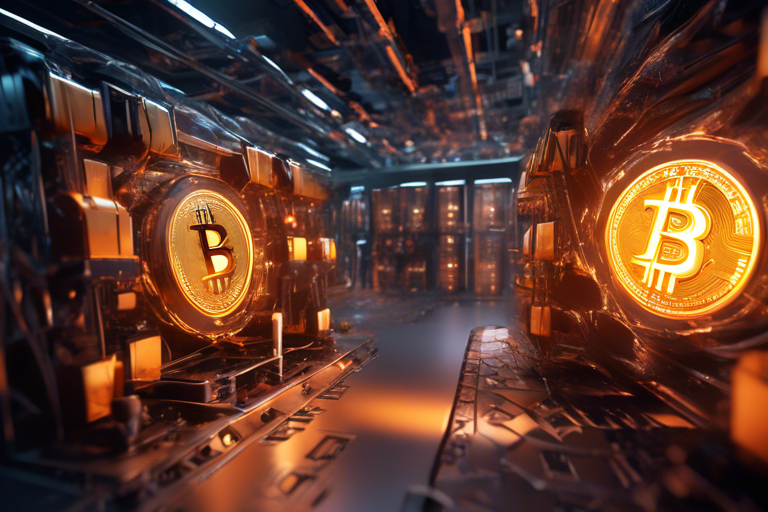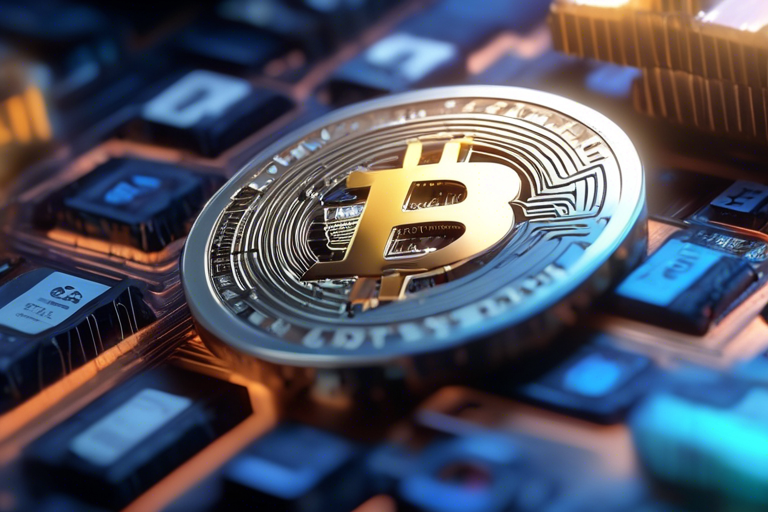The Threat of Bitcoin Mining Centralization 🚨
Bitcoin (BTC) stands out as the premier cryptocurrency, prized for its secure and uncensorable nature driven by a decentralized network of miners who validate transactions. Despite this, concerns have been raised by experts regarding potential threats to Bitcoin’s security model and decentralization over time, particularly with the rise of proof-of-work centralization. Recent research has shed light on the dominance of certain mining pools, raising alarm bells within the crypto community.
Is Antpool Taking Over Bitcoin Mining Operations? 🤔
An analysis conducted by a pseudonymous analyst known as b10c revealed unsettling findings about the centralization of Bitcoin mining operations, particularly with Antpool at the helm. Several prominent mining pools, including BTC.com Pool, Binance Pool, Poolin, EMCD, and Rawpool, were identified as potentially utilizing the same block template as Antpool, accounting for a significant portion of Bitcoin’s hashrate. This revelation has raised concerns about the concentration of mining power within the network.
- Antpool controls a substantial portion of Bitcoin’s hashrate, potentially impacting the decentralization of the network.
- BTC miners add transactions to blocks using a block template, with similarities indicating potential centralization.
- Manual prioritization of transactions in these pools suggests a coordinated effort that may compromise decentralization.
Implications of Mining Pool Centralization 📉
The revelation of coordinated activities among major mining pools has sparked discussions about the ramifications of such centralization. While some argue that miners can switch pools to avoid concentration of power, the underlying agreements and practices among these pools suggest a more complex scenario. The involvement of Bitmain, a leading ASIC manufacturer, in the equation further adds to the concerns surrounding decentralization within the network.
- Miners’ ability to migrate between pools may not be sufficient to counteract centralized control.
- Agreements among mining pools and their common practices raise questions about true decentralization.
- The role of mining pool coordinators in shaping Bitcoin’s network dynamics and centralization tendencies.
Addressing the Centralization Challenge 🛠️
Efforts to mitigate the risks of mining pool centralization are underway, with proposals such as the implementation of Stratum V2 being considered. However, the adoption of such solutions depends on the willingness of pools and miners to embrace them, with no guarantees of success. As investors closely monitor these developments, the future trajectory of Bitcoin’s fundamentals hangs in the balance, with potential implications for its market value.
Hot Take: Navigating Bitcoin’s Centralization Conundrum 🔥
As a crypto enthusiast, staying informed about the evolving landscape of Bitcoin mining centralization is crucial. The recent discoveries regarding the dominance of certain mining pools raise important questions about the network’s decentralization. While solutions are being explored to address these concerns, the ultimate impact on Bitcoin’s core principles and market dynamics remains to be seen. Keep a close eye on developments in this space to understand the implications for the broader crypto ecosystem.





 By
By
 By
By
 By
By


 By
By